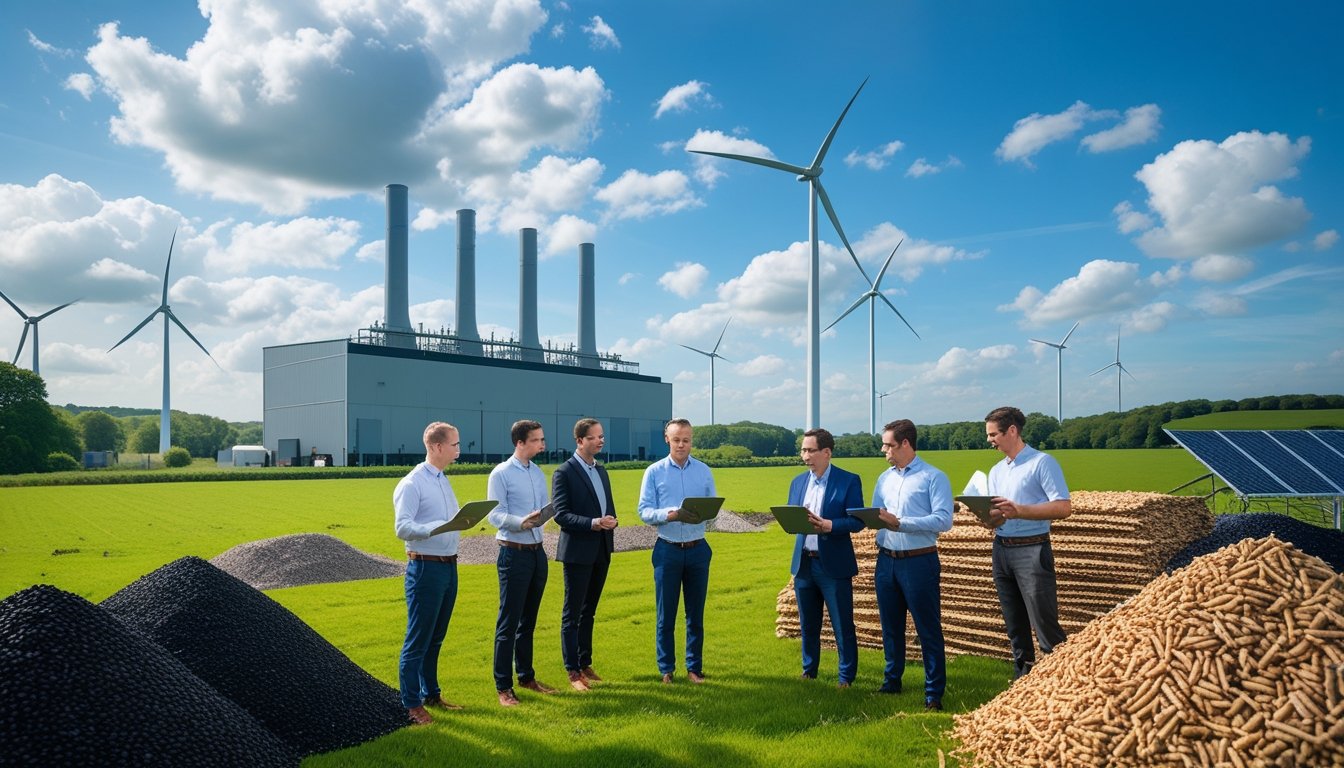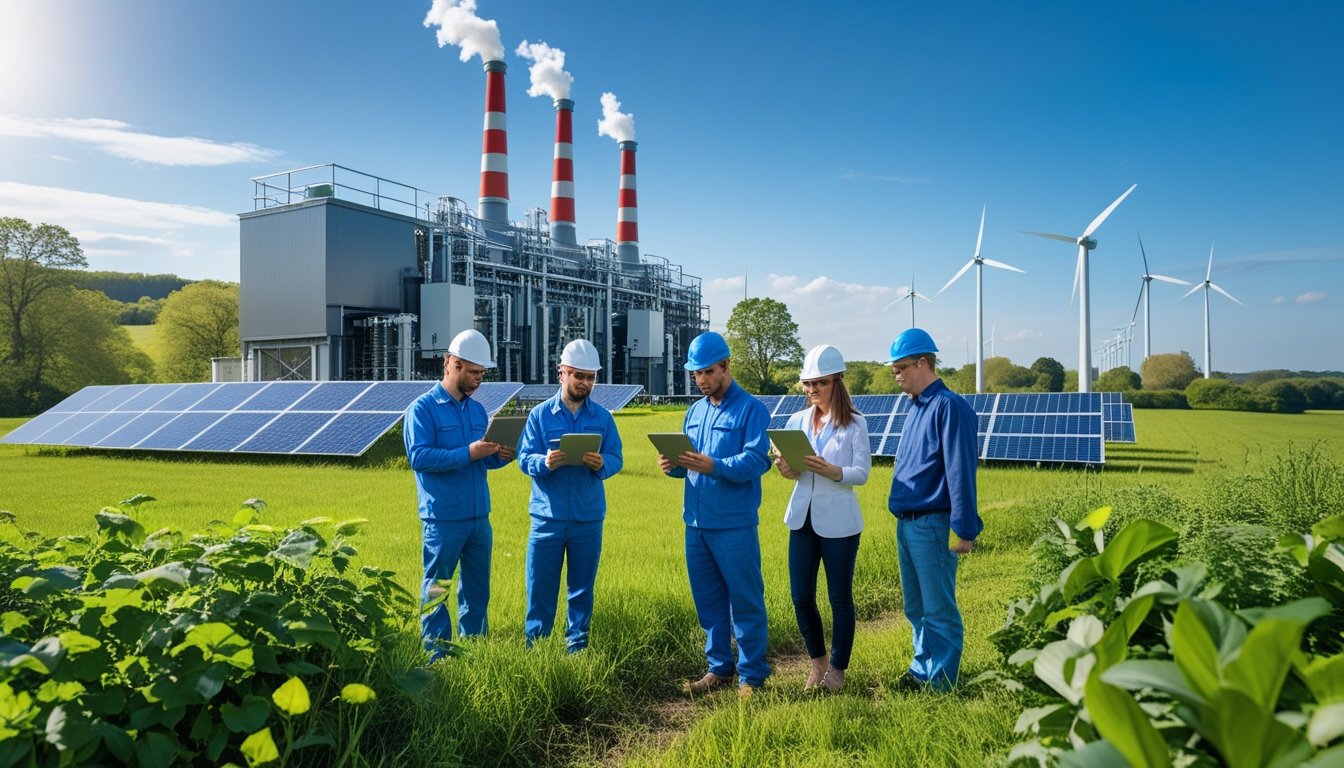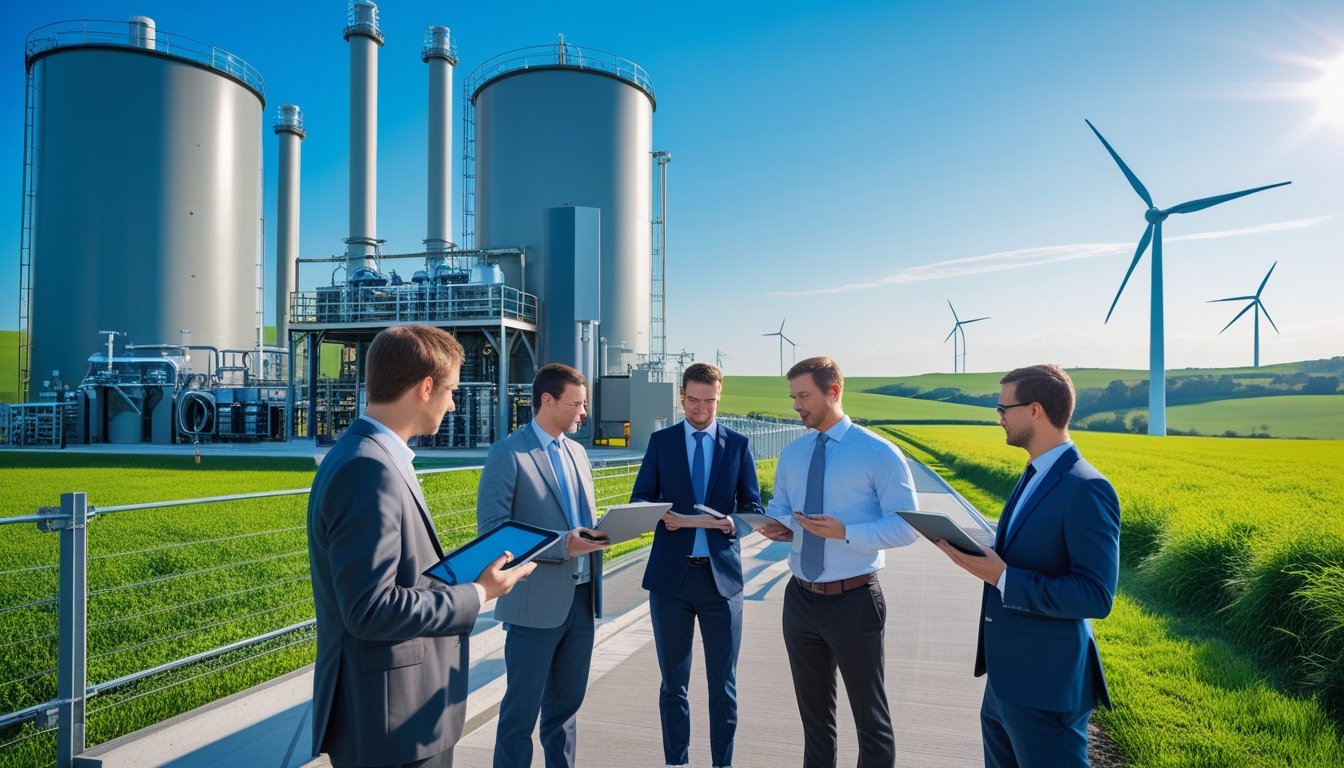Late updated: 09 Sep 2025 13:09
Written by: Eleanor Hartman
Understanding Biomass Energy Benefits in the UK: A Comprehensive Overview
Biomass energy has become a vital component of the United Kingdom's renewable energy landscape, offering a diverse and sustainable source of power. By tapping into organic materials like wood, plants, and waste, the UK can generate heat and electricity while significantly reducing greenhouse gas emissions compared to fossil fuels. The use of biomass complements other renewable technologies like wind and solar, ensuring a more balanced and stable energy system.

As we look towards achieving net-zero emissions by 2050, biomass plays an increasingly important role in the UK's energy strategy. It's not just about reducing carbon footprints; biomass also provides reliable power that helps balance the variable nature of other renewable energy sources. Innovative applications, such as bioenergy with carbon capture and storage (BECCS), have potential to enhance these benefits further.
Exploring the advantages of biomass energy helps us appreciate its contribution to a more sustainable energy future. We’ll delve into its core benefits, examine how it's implemented across the UK, and consider the opportunities that lie ahead.
Key Takeaways
- Biomass energy reduces emissions compared to fossil fuels.
- It balances the energy system alongside wind and solar.
- Future opportunities include innovative technologies like BECCS.
Core Benefits of Biomass Energy in the UK
Biomass energy plays a significant role in the UK's transition to a cleaner, sustainable future. Key benefits include cutting carbon emissions, enhancing energy security, and bolstering economic growth.
Reduction of Carbon Emissions and Decarbonisation
Using biomass energy significantly lowers carbon emissions. When biomass is burned, the carbon dioxide (CO₂) released is roughly equivalent to the carbon absorbed by plants during their growth. This closed carbon cycle helps in reducing the overall carbon footprint.
Decarbonisation is a major goal for the UK as it seeks to meet its net-zero targets by 2050. Biomass energy is crucial in replacing fossil fuels with cleaner options. Compared to traditional coal or gas, biomass is a much cleaner source, making a substantial contribution to national decarbonisation efforts.
Support for Energy Security and Grid Stability
Biomass energy enhances energy security by diversifying the energy mix. This diversification is vital in reducing the UK’s reliance on imported fuels, thereby increasing self-sufficiency in energy production. Biomass is inherently more stable than some other renewable sources like solar or wind due to its ability to provide "firm" power.
Grid stability is also improved through the use of biomass. It offers a continuous and reliable source of energy, which can be essential in balancing the intermittent nature of other renewable energy sources. As a result, biomass strengthens the resilience of the national grid.
Sustainable Biomass and Renewable Energy Sources
Sustainable biomass is critical to ensuring long-term renewable energy solutions. By using materials such as wood pellets, agricultural waste, and energy crops, we can sustainably generate energy without depleting natural resources. This approach prioritises replenishable resources to maintain ecological balance.
Renewable energy sources like biomass are essential for a cleaner future as they lessen the dependency on fossil fuels. Additionally, efforts to expand the domestic production of biomass can further reduce imports, supporting sustainability goals. The ongoing research and innovation in biomass technologies ensure continuous improvement and adaptability.
Economic Value and Rural Development
Biomass energy contributes significantly to the UK's economy, particularly in rural areas. Its development creates job opportunities in farming, production, and the overall energy sector. The increased demand for energy crops and biomass materials provides new revenue streams for farmers and enhances rural economies.
Investment in biomass energy infrastructure also creates broader economic value. By fostering partnerships between private enterprises and local communities, more efficient energy solutions are developed. Furthermore, the economic diversification offered by biomass energy projects helps to revitalise rural regions by promoting sustainable growth.
Key Applications, Technologies, and Future Opportunities

Biomass energy plays a critical role in the UK's renewable energy strategy. It has diverse applications, utilising a range of technologies, and is poised for future growth, contributing significantly to sustainable energy goals.
Electricity Generation and Domestic Biomass Heating
Electricity generation through biomass power plants is a major application in the UK. Facilities like Drax have converted from coal to biomass, primarily using wood pellets. These plants contribute to net-zero carbon emissions by using sustainably sourced biomass materials.
For domestic biomass heating, biomass boilers and stoves are utilised, burning renewable resources like wood pellets and forest residues. The Renewable Heat Incentive (RHI) scheme supports this by providing financial incentives to users. Domestic systems play a part in reducing fossil fuel dependence, while also contributing to climate targets for cutting carbon emissions.
Bioenergy with Carbon Capture and Storage (BECCS)
BECCS is a promising technology combining bioenergy production with carbon capture and storage. By capturing CO2 produced during the biomass conversion processes, BECCS effectively achieves carbon removals, playing a vital role in reaching climate targets.
In the UK, ongoing research and projects focus on integrating BECCS into existing biomass power facilities. By reducing atmospheric carbon, BECCS contributes significantly to our national environmental strategies, aligning with recommendations from the Climate Change Committee and accelerating the energy transition.
Sustainable Biomass Fuels and Supply Chains
Sustainable biomass fuels are pivotal in efficiently harnessing biomaterials like energy crops, agricultural waste, and forest residues. These materials are used in various applications, including aviation fuels, providing renewable alternatives to fossil-based options.
Developing reliable biomass supply chains is crucial to ensure the sustainability of these resources. The focus is on optimising transportation and processing while ensuring that sourcing practices do not negatively impact natural ecosystems. Our energy transition depends on these sustainable practices to support renewable energy systems effectively.
Frequently Asked Questions

Biomass energy plays an important role in the UK's energy landscape. It supports renewable energy initiatives while also helping the nation reduce its carbon footprint. The answers to these common questions provide insights into its benefits, strategic integration, and the challenges it faces.
What are the key advantages of using biomass energy in the UK?
Biomass energy offers a consistent and reliable source of power, complementing renewable sources like wind and solar. It utilises organic materials, reducing reliance on fossil fuels and aiding in the nation's decarbonisation efforts. By tapping into local resources, biomass energy supports energy security and can stimulate rural economies.
How does the UK's biomass strategy contribute to sustainable energy goals?
The UK’s biomass strategy focuses on incorporating biomass into the renewable energy mix, helping decrease carbon emissions. Through the strategic use of locally produced biomass, the UK aims to achieve a more sustainable and balanced energy portfolio. This strategy aligns with long-term goals of reaching net zero carbon emissions by 2050.
What are the main considerations when installing a biomass boiler?
Key considerations include initial installation costs, availability of biomass fuel, and space requirements for storage. It is essential to evaluate the type of biomass materials that will be used in the region. Prospective users should also consider maintenance needs and local regulations regarding emissions and renewable energy incentives.
Could you explain the working principle of a biomass boiler system?
Biomass boilers burn organic materials such as wood pellets to produce heat, which can be used for heating services or to generate electricity. The system includes a fuel storage area, combustion chamber, and heat exchanger. Properly managed, biomass boilers offer an effective and sustainable heating solution, converting fuel to energy with high efficiency.
In what ways does biomass energy impact the UK's environmental targets?
By replacing fossil fuels, biomass energy contributes to reducing greenhouse gas emissions. Its sustainable use helps the UK meet international carbon reduction commitments and enhances energy independence. The controlled use of biomass also allows for improved management of local natural resources, promoting biodiversity and protecting ecosystems.
What are the principal challenges associated with biomass energy production?
Challenges include the sustainability of biomass supply chains, emissions from burning material, and public perception regarding pollution. There is a need for rigorous regulation to ensure that biomass sourcing remains sustainable. Additionally, the economic viability of biomass compared to other renewables can be a concern when evaluating long-term energy strategies.